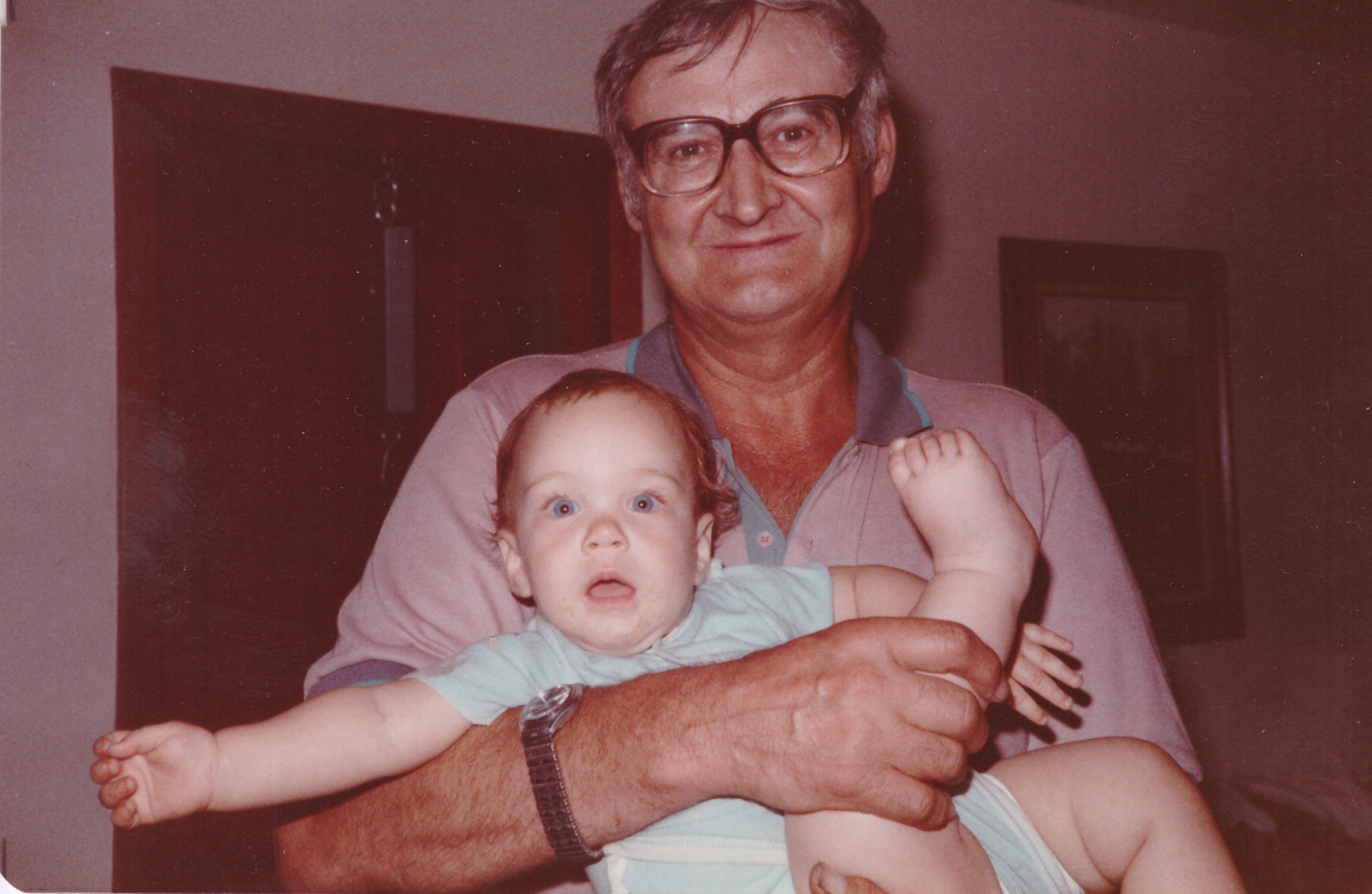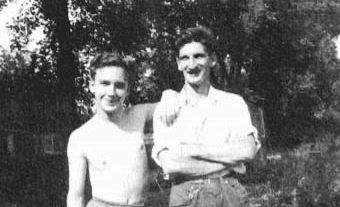Everett George Klippert (1926–1996) was a popular Calgary bus driver who was jailed for homosexuality from 1960 to 1964, and from 1965 to 1971. An unlikely martyr, he shunned the spotlight. Klippert was once described as “Canada’s most famous homosexual” due to his unjust prison sentences, which ultimately led to the decriminalization of homosexuality in Canada.

Growing Up in Calgary
Klippert was born in Saskatchewan in 1926, the youngest of nine siblings. His family relocated to Calgary when he was just two years old. Calgary’s economy in 1928 was having one of its best years since the First World War, causing many out-of-town families to migrate there. The housing market was tight, but the Klipperts were able to rent a house on the city’s North Hill. The family moved around frequently during its first few years in Calgary. Sadly, Everett’s mother died in 1933 from kidney disease.
In 1934, Klippert’s father bought a house just north of the downtown core. There, Everett’s older sister, Leah, took it upon herself to look after her eight younger brothers. The family was evangelical Baptist, and Leah made sure that the family kept to its faith; they regularly attended services at the Crescent Heights Baptist Church.
School was not a priority for Everett and he left after completing Grade 8. Everett’s father operated a grocery store, and Everett’s first job was working in the store along with some of his older brothers. His next job was working at a local dairy, and then, for eight years, he drove a bus for Calgary Transit. He was a popular bus driver, too. There are stories of his regular passengers skipping earlier buses to specifically ride home with him due to his friendly, congenial nature.
Klippert’s First Trial
In 1960, Klippert came under police scrutiny when the outraged father of one young man Klippert had had sex with asked police to investigate. On 21 March, Klippert was taken into custody on a charge of “contributing to the delinquency of a young boy.” Bail was set at $500.
The next day, 22 March, his bail was increased to $9,000, as the Crown brought 17 more charges forward — “indecent assault on 17 young Calgary boys”— due to the discovery of Klippert’s little black book, a document of his dating life. “Klippert faced the court with bowed head on Tuesday, elbows on the dock rail, and his face hidden in his hands,” a local newspaper reported.
In 1960, there was no age of consent for gay sex, as the practice was illegal. The court records do not indicate any ages, although Klippert’s future court proceedings found no issue concerning the age of his Calgary “victims.”
On 4 April, Klippert’s family came up with the bail, an equivalent of nearly $75,000 in today’s dollars. They also procured a positive reference letter from their church reverend. However, Klippert was kept in custody until 14 April, while the Crown prosecutor adjusted the charges to 18 counts of gross indecency.
Klippert pleaded guilty to all charges. The Crown put forward evidence that Klippert frequented boxing matches, wrestling matches, swimming pools and other places where he was likely to come in contact with young men.
His defence lawyer told the court that Klippert’s psychiatric assessment found that his homosexual tendencies arose from an unhappy childhood. He also noted that Klippert had been steadily employed since he was 16 and asked the judge to place him just on probation.
The judge sentenced Klippert to a four-year jail sentence for each of the 18 charges. He explained that he was being lenient because he allowed the sentences to be served concurrently, as opposed to a possible life sentence if they were served consecutively.
Dangerous Offender
After serving his sentence, Klippert moved to the Northwest Territories, where he would be prosecuted for similar activity and jailed again in 1965. Because of his repeat offences, he was also declared a dangerous sexual offender — a ruling upheld by the Supreme Court of Canada in 1967.
Klippert's plight under the law, however, prompted concern in Ottawa and led to the eventual legalization of consensual homosexual sex in 1969. However, this change would not help Klippert — he remained in prison until 1971.
What Klippert’s Case Means
Everett Klippert was victim of the homophobic era he was born into. He seemed without guile and naively thought honesty and co-operation would protect him. The state, in fact, cruelly used these character traits against him.
He also was a product of his era. Lesbians and gay men of the 1960s were adept at flying under the radar in Canada. Their primary preoccupation was concealing their sexual orientation and finding safe places to meet and socialize. By and large, they were not interested in emancipation; they just wanted to be left alone. It was not until the cultural revolutions of the early 1970s that gay liberation took root on university campuses as well as in Canada’s largest cities.
Klippert never fought against the injustices that had taken over his life, nor would he affiliate in any way with the gay community. He would later marry a great friend of his, Dorothy Hagstrom, and live a quiet life until he died of kidney disease in 1996.
Everett Klippert was an unlucky man and an unlikely Canadian martyr. Yet he represents countless others who had similarly awful lives back then, when homosexuality was considered a curse, a sickness and a criminal act.

 Share on Facebook
Share on Facebook Share on X
Share on X Share by Email
Share by Email Share on Google Classroom
Share on Google Classroom



